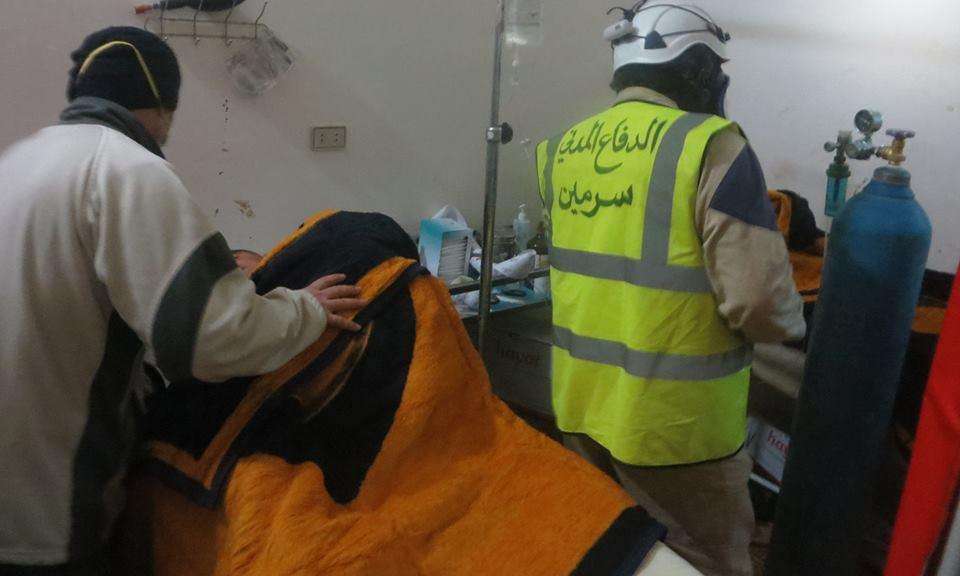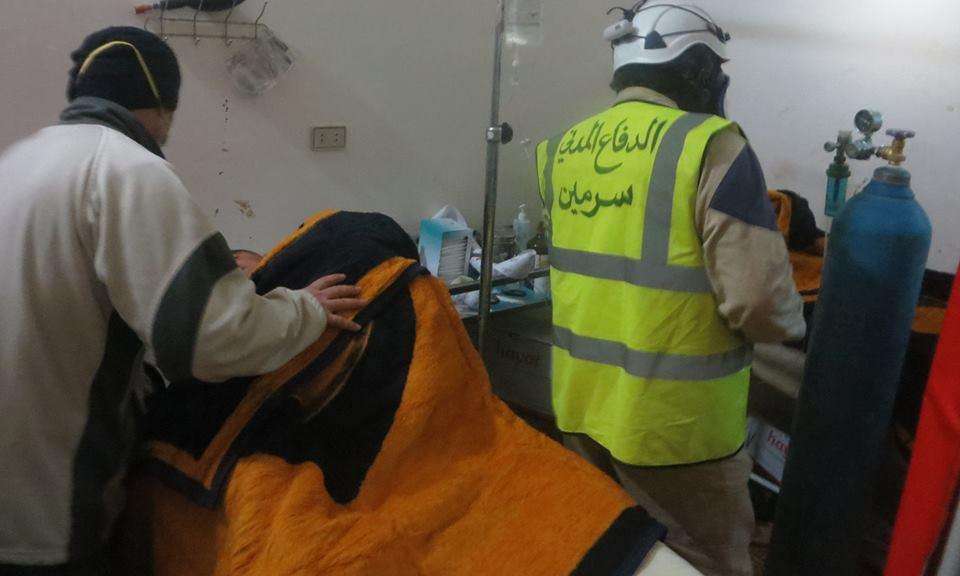PARIS/NEW YORK, MARCH 18, 2015—A chlorine attack in northwestern Syria on March 16 killed six people and poisoned a further 70, according to reports by Syrian doctors in the region in contact with the international medical humanitarian organization Doctors Without Borders/Médecins Sans Frontières (MSF).
The attacks took place around the rebel-controlled town of Sarmin, in Idlib region, where local people witnessed helicopters dropping barrels that released a suffocating gas on impact. MSF provides supplies to the Sarmin Hospital, where the wounded were treated. MSF personnel received the reports of dead and wounded from hospital staff.
"We saw people arriving at the hospital from a neighboring village," the director of Sarmin Hospital told MSF. "Among them, there was a family—three young children with their parents. They were in very serious condition and dying. Their parents were able to speak but they were having a lot of difficulty breathing."
The entire family died in the hospital, while the grandmother of the children died of asphyxiation before reaching medical assistance.
"Attacking a village and its civilian population with chlorine shows once again that the Syrian conflict knows no limits," said Dr. Mego Terzian, MSF president.
See Other Recent Accounts from Besieged Areas of Syria:
Syrian Doctors in Their Own Words
The events and symptoms described by the medical staff of the hospital clearly indicate the presence of chlorine poisoning. There were no signs suggestive of another class of toxic products.
"It was dark so we couldn’t see any particular color in the sky," the hospital director said. "But the air smelled of cleaning products and their clothes had the distinctive smell of chlorine."
The victims of the attack experienced symptoms varying in severity, with some people acutely asphyxiated.
The hospital team treated 70 people: the inhabitants of a neighboring village which was attacked first by barrel bombs; the inhabitants of Sarmin town which was attacked later during the night; and voluntary first aid workers of the Syrian Civil Defense, who were affected when they arrived to provide assistance.
"There were 20 patients in serious condition, agitated, foaming blood at the mouth, and displaying skin rashes," said another hospital doctor.
The victims were given oxygen as well as treatments to dilate the bronchia of the lungs and treat inflammation due to burns. The doctor said that aerosol masks were the most effective tools to alleviate symptoms.
MSF operates six medical facilities inside Syria and directly supports more than 100 clinics, health posts, and field hospitals in Syria. MSF is also working with patients from Syria who have fled to Jordan, Lebanon, and Iraq.





